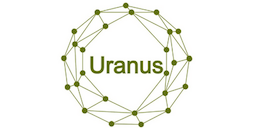
Uranus presents itself as the Airbnb platform in computing resources. By enabling and connecting redundant computer resources through the Uranus blockchain (which is optimized for this task), and distributed scaled down container technology (used to tap into ‘real world’ computer resources), various applications based on distributed computing can be integrated to build a shared computing service ecosystem.
The problem is well known, computing terminals that are found everywhere, such as corporate and personal computers, and traditional in-house servers, are far from being fully utilized. The average utilization rate is currently less than 15%. This represents a massive depreciation of capital, as most of these assets will never be used to even remotely near their full potential.
This problem has been recognized and is currently being addressed by a number of blockchain projects. We want to find out what, if anything, makes Uranus stand out in this space.
Looking at the Uranus executive team with an average 20 years of experience in this field, we are eager to find out how Uranus aims to tackle this task and especially how far advanced their technical solution is by investigating the contents of their github. Having ChainTED as lead investor in Uranus and their performance thus far in fresh memory (latest Seele Network) further raises our expectations.
The distributed computing-power architecture of the Uranus platform can be used for general purpose, large-scale computing tasks such as weather data analysis (which requires massive computer power), and a variety of applications based on edge computing, such as voting, search, IoT node management and advertising promotions.
Functioning as a BaaS (Blockchain as a Service), it also provides one-click deployment and application marketplace for other nodes on the chain, which in plain language means that it is very easy to deploy applications which use the leveraged computing resources and that every application can be part of a marketplace which nodes can access, forming an ecosystem.
The Uranus project is extensive and contains much more than is visible at first glance. To fully describe it goes beyond the scope of this article as we focus on the main building blocks and their progress represented by github source code. (At this point we will invite the non-technical reader who prefers a condensed conclusion to skip to the end of this article (and encourage our friend Sever to keep on reading))
Looking at the Uranus chain itself, it proposes a hybrid consensus algorithm of combining DPOS + BFT. It avoids the problem of overconcentration of validators which is found in some competing projects with a limited amount of DPOS validators that can basically dictate chain transactions.
The chain has a modular architecture which can be expanded with new micro-services as needed. The TPS performance is supported by the ability to run multiple chains in parallel as one entity.
We take a look at the content of the Uranus github after downloading and find the following components:
UraAuth - Rest API based on Python HTTP Lib and has its own database/table structure.
There are no issues with the code, it is clean and has good documentation. Example:
https://github.com/UranusBlockStack/UraAuth/blob/master/backend/utils/BackendUtils.py
It implements a typical API nothing more and nothing less, but still solid and well written.
UraEP - this is Uranus’ own sharing platform protocol (by rolling back the github commits we are able to conclude that it is based on TCP) and handles communication between the main client and server building blocks (UraAgent (‘client’) and UraEnginge (‘server’)).
Ura EP is coded in C++, it’s solid code with comments in English and Chinese mixed together.
Seems like this dynamic channel uses ICTEP Transfer Protocol and is able to handle files and support the Windows platform, which is promising. Overall we find the code very structured and clean.
UraAgent - is a guest agent based on Ovirt, it currently lacks front-end, at least in the public repo we are looking at.
UraEngine - is actually the Ovirt Engine, but branded for Uranus. UraEngine is the key to scaling the platform (by just scaling the virtual machine).
Source: https://github.com/UranusBlockStack/UraEngine
All in all, we deem this code to be in the early alpha stage but showing all signs of solid and professional development.
It’s noteworthy that VM for cloud computing is the latest technology trend, which Uranus is tapping into. E.g. AWS uses VMs to localize storage gateways (caching big files) for centralized cloud storage.
At this early stage, we see Uranus doing exactly the right things, solid open source following the latest trends from the big leaders (e.g. AWS).
Conclusion: We see high potential with Uranus and believe that their technical solution (and especially the way the project utilizes virtual machines) is a unique selling point among blockchain projects competing in this space. They are tapping into the latest trend for cloud computing, e.g Amazon already uses virtual machines to localize storage gateways (caching of big files) for their centralized cloud storage.
The advantage of this project is that Uranus makes computing easy to install, easy to scale/ manage and provides an open hardware platform.
We see a real world need for it from a commercial perspective. The high speed / quantum computer projects are in need of something simple to scale down and the Uranus container model is perfect for it, something that will likely drive adoption. We are bullish on Uranus and believe it can stand out in this very competitive space and acquire market share.